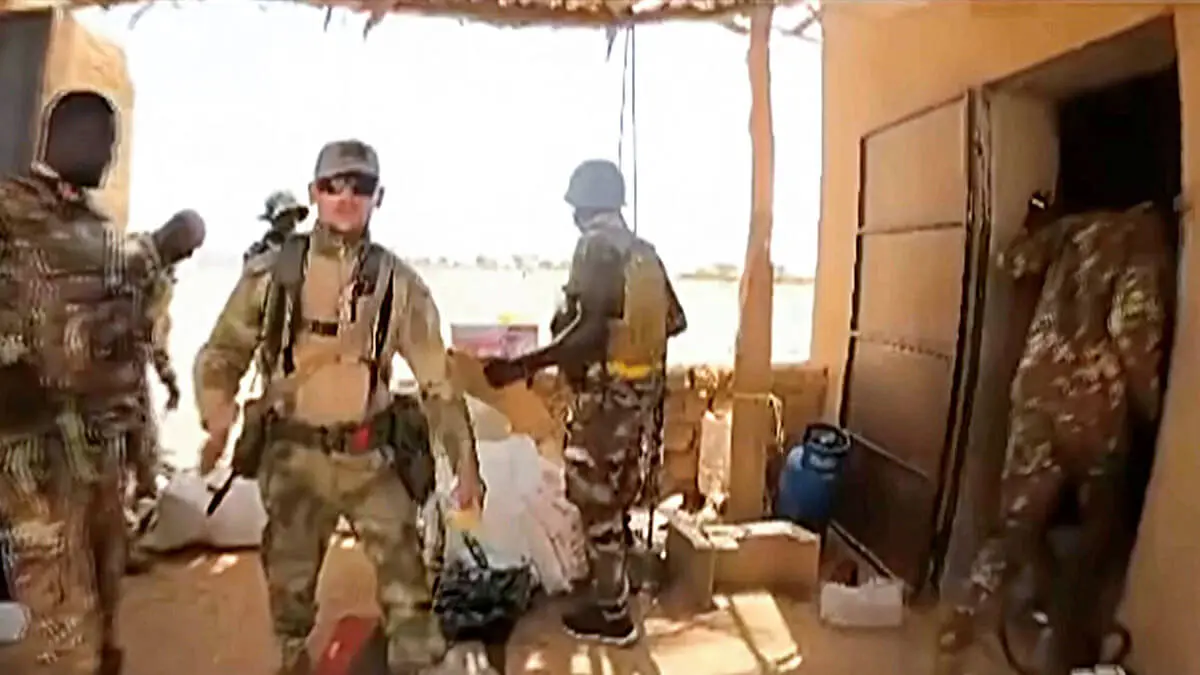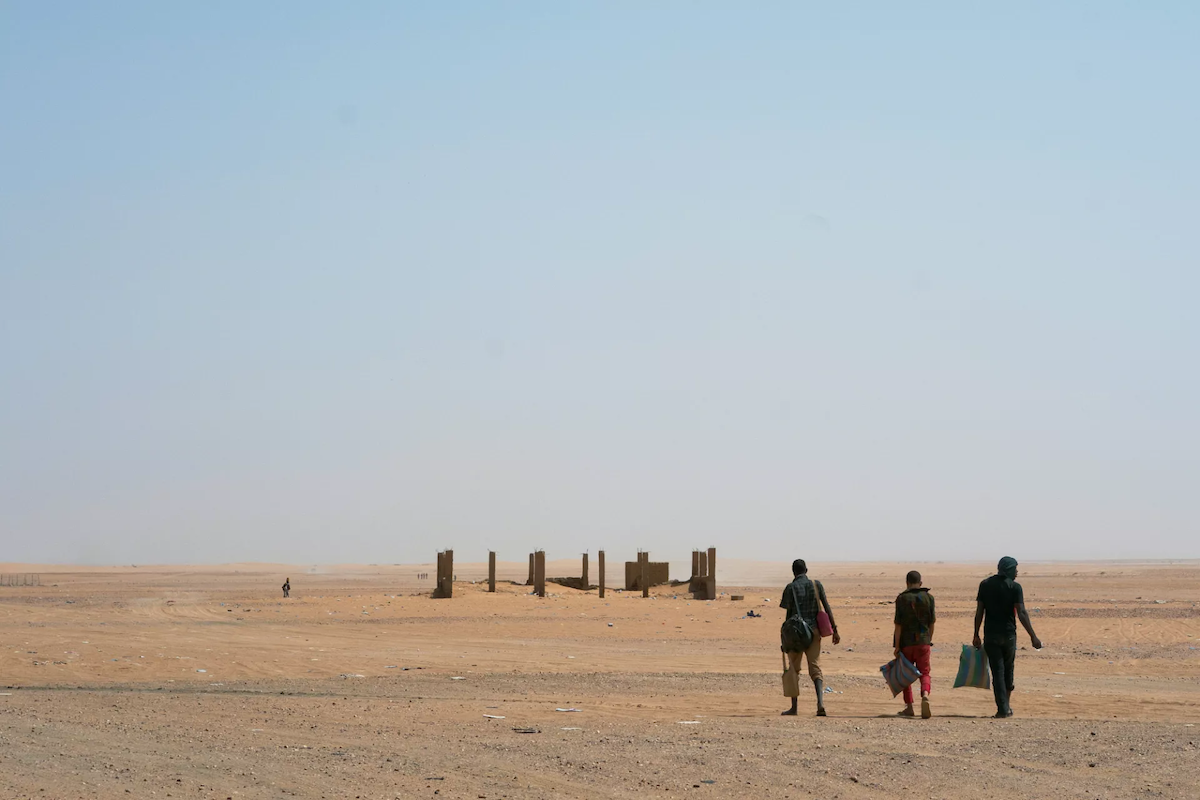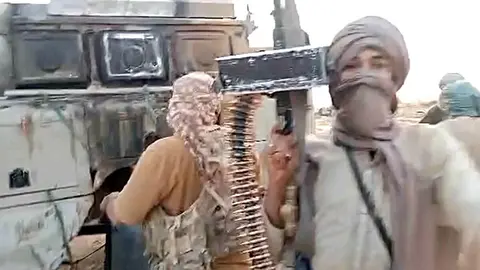Algeria: the decline of a destabilizing actor in the Sahel region

Far from being a pillar of regional stability, as it seeks to portray itself, Algeria has become a disruptive force whose actions threaten the fragile security of the entire region.
But the drone incident is not an isolated incident, but the culmination of a series of provocations by the Algerian regime. According to the Malian version, the aircraft was operating within its own territory when it was destroyed by Algerian forces, preventing “the neutralization of a terrorist group planning acts against the AES” (Alliance of Sahel States).
Although Algeria claims that the drone entered its airspace, data provided by the Malian authorities contradicts this version, suggesting deliberate action to hinder counterterrorism operations in the area.
This provocation has led to an unprecedented diplomatic escalation: Mali, Niger, and Burkina Faso have withdrawn their ambassadors from Algiers, while Algeria has responded with reciprocal measures and the closure of its airspace to Mali. Algeria's disproportionate reaction reflects its true stance: that of a regime that prefers confrontation to constructive dialogue.
On the other hand, tensions between Algeria and the Sahel countries, especially Mali, are not new, but they have reached alarming levels. The first decisive step in this deterioration came when Mali announced in January 2024 the end of the 2015 Algiers Agreement, denouncing what it perceived as “an increase in hostile acts” by Algiers. This agreement, supposedly designed to bring stability to northern Mali, actually served Algeria's interests in maintaining its influence in the region.
From the UN podium, Mali has openly accused Algeria of harboring terrorists and pointed to the Salafist Group for Preaching and Combat, “a movement of Algerian origin” that evolved into Al Qaeda in the Islamic Maghreb (AQIM), as the root cause of the situation in Mali. These are not unfounded accusations, but observations based on the direct experience of a country suffering the consequences of Algeria's double game.
What makes Algerian policy particularly worrying is its apparent willingness to use armed groups as pawns in its regional strategy. Malian Foreign Minister Abdoulaye Diop was clear in stating that the downing of the drone “once again confirms the collusion between the Algerian regime and terrorist groups that receive asylum, protection, and support from Algeria.”
This serious accusation is echoed in the analyses of various regional security experts, who warn of Algeria's ambiguous role vis-à-vis the armed groups operating on its borders. It is Algeria's invisible hand in regional conflicts.
Algeria's regional decline is more than palpable. Its growing isolation is due to its inability to adapt to new regional challenges. While countries such as Morocco have diversified their alliances and adopted a more pragmatic approach, Algeria remains anchored in obsolete Cold War paradigms, using anti-colonial rhetoric to cover up its own hegemonic ambitions.
Algeria's obstructionist attitude represents one of the biggest obstacles to the integration and development of the Maghreb and the Sahel. The Arab Maghreb Union, created in 1989 as a commitment to regional integration, has been virtually paralyzed by tensions between Algeria and Morocco. The cost of this “non-integration” is estimated at billions of dollars annually in lost trade and investment opportunities.
While the Sahel countries seek innovative solutions to their security and development challenges, Algeria seems more interested in maintaining the status quo and preserving its waning influence. The creation of the Alliance of Sahel States (AES) by Mali, Niger, and Burkina Faso can be interpreted as a response to this Algerian policy, a search for alternatives to the tutelage of a neighbor increasingly perceived as part of the problem rather than part of the solution.
The Malian drone incident is not simply a temporary diplomatic crisis, but a reflection of a fundamentally flawed Algerian foreign policy. Under the guise of a defender of regional stability, Algeria has proven to be an unpredictable actor whose actions contribute to insecurity in the Sahel. The international community must recognize this reality and press Algeria to adopt a more constructive approach in its relations with its neighbors.
Furthermore, Algeria's irrational support for the Polisario Front not only fuels bilateral tensions with Morocco, but also constitutes a historical burden for the development of the Maghreb. Although Algiers insists on presenting itself as a “neutral mediator,” its real role is exposed by its hosting of the Polisario leadership in Tindouf, its financing of its military apparatus, and its systematic blocking of diplomatic initiatives that do not align with its interests.
This flagrant contradiction—declaring itself uninvolved in the conflict while maintaining logistical bases for the separatist group—has made Algeria the main obstacle to pragmatic solutions, as demonstrated by its rejection of the autonomy proposed by Morocco, a model supported by key powers such as the United States, Israel, and most EU member states.
Algeria's stubbornness in imposing an unworkable independence referendum—an anachronistic approach after 50 years of conflict—knowing that it is unachievable, reveals its true objective: to perpetuate regional instability in order to weaken Morocco. The Tindouf camps, used as a propaganda tool, keep thousands of Sahrawis in precarious conditions in the middle of the desert while Algeria uses the conflict to cover up its internal failures: an economy dependent on gas, recurring social protests, and an aging dictatorial military elite.
A gerontocracy that needs external enemies to justify its power. Until it abandons this irresponsible policy, the Maghreb will continue to pay the price for its geopolitical short-sightedness, and Algeria's double discourse in this dispute will remain an insurmountable obstacle to the long-awaited Maghreb integration.
The latest chapter in this crisis comes with the terrible exploitation of migration as a political weapon and the systematic violation of human rights. The recent mass expulsions of sub-Saharan migrants by Algeria, with more than 4,000 cases recorded in April 2025 alone, are not simple border control operations, but a tool of political pressure against the Sahel countries. This figure represents a monthly record, exceeding the 3,000/month of 2024.
🚨 جريمة مكتملة الأركان على حدود الجزائر .. الدولة التي تدعي دعم #إفريقيا… وهي تمارس إبادة ناعمة في حق أبنائها .. ترحيل جماعي صادم .. صحراء الجزائر تتحول إلى مقبرة مفتوحة!
— العيون ♥️👑🇲🇦 (@la3yon_OFFICIEL) April 25, 2025
الجزائر، التي ما فتئت تتغنى بشعارات "الأخوة الإفريقية" و"دعم الشعوب المستضعفة"، تكشف اليوم عن وجهها… https://t.co/04FVL2sNnW pic.twitter.com/6Ko3dGuT4F
The Algerian regime has turned the human drama of migration into a bargaining chip to punish Mali, Niger, and Burkina Faso for aligning themselves with the Alliance of Sahel States (AES). Doctors Without Borders reports how migrants are abandoned at “Point Zero,” a desert area between Algeria and Niger, forced to walk 15 km in extreme temperatures without water or food, which has caused documented deaths and serious injuries.
Almost 70% of those who received medical care from the NGO say they were subjected to violence and all kinds of degrading acts by Algerian guards: serious injuries, survivors of sexual violence, and cases of severe trauma. From January to May 2022 alone, MSF documented the return of 14,196 migrants from Algeria. Far from being sporadic, these practices reached record levels in 2024.
The pattern is clear: operations intensify following diplomatic tensions. In April 2025, coinciding with the downing of a drone and the withdrawal of ambassadors from AES countries, Algeria abruptly increased deportations.
According to various sources, many presented “injuries to their faces and arms attributed to violence by the Algerian security forces,” corroborating reports by the World Organization Against Torture, which accused Algeria of using “torture, confiscation of documents, and systematic sexual violence.” This strategy exposes the hypocrisy of a regime that, while financing militias in the Sahel, dehumanizes African migrants, treating them as disposable pawns in its geopolitical game.
The international community has remained complicitly silent, despite the fact that these actions openly contradict international humanitarian law. Mass expulsions are not only a humanitarian crisis, they are symptomatic of a regime that, faced with its loss of influence and regional isolation, resorts to brutal tactics to reaffirm its fading authority in the Sahel.
As an addendum, and related to the above, we must not overlook Spain's double standard in relation to the Algeria-Morocco axis. The national media and political narrative on migration management reveals a structural double standard.

While Morocco is systematically singled out for “exploiting” migration flows—with extensive coverage of crises such as the one in Ceuta in 2021 or the small boats arriving in the Canary Islands—Algeria carries out such practices with opacity and without public scrutiny. The Algerian regime exploits the lack of media attention in the central Sahel to carry out its strategy. Its actions—such as the more than 30,000 expulsions in 2024—lack the visual impact of the small boats, even though they cause equally serious humanitarian crises.
In Spain, criticism of migration focuses on Morocco. Under the premise that it affects our borders, any incident in Ceuta, Melilla, or the Canary Islands is amplified. In contrast, there is complicit silence and a willingness to look the other way when it comes to Algeria's brutal practices on migration. The contrast is obscene: Rabat collaborates in border controls and repatriations, while Algeria expels thousands of Africans into the desert (as we said earlier, 4,000 in April 2025 alone) and finances human trafficking networks to the Spanish coast, with an exponential increase in the arrival of small boats from Algeria to the southeast of the peninsula and the Balearic Islands of around 150-170% between 2023 and 2024. In that case, wouldn't our borders also be affected? Therefore, the anti-Moroccan argument would be invalidated, and this double standard—or rather double morality—in which Algeria comes out better would be reinforced.
Morocco, despite its challenges, maintains real cooperation mechanisms. Algeria, on the other hand, uses migrants as a political weapon while Europe finances its regime with million-dollar contracts. This asymmetry is not innocent: it responds to the fact that criticizing Morocco “sells” in our country and is used as a political and media weapon (Sahrawi conflict, Ceuta/Melilla, etc.).
The result is a schizophrenic Spanish view on migration: condemning the partner that cooperates (Morocco) and absolving the one that sows chaos (Algeria). A strange complicity fostered by certain sectors that does not reflect well on us.


